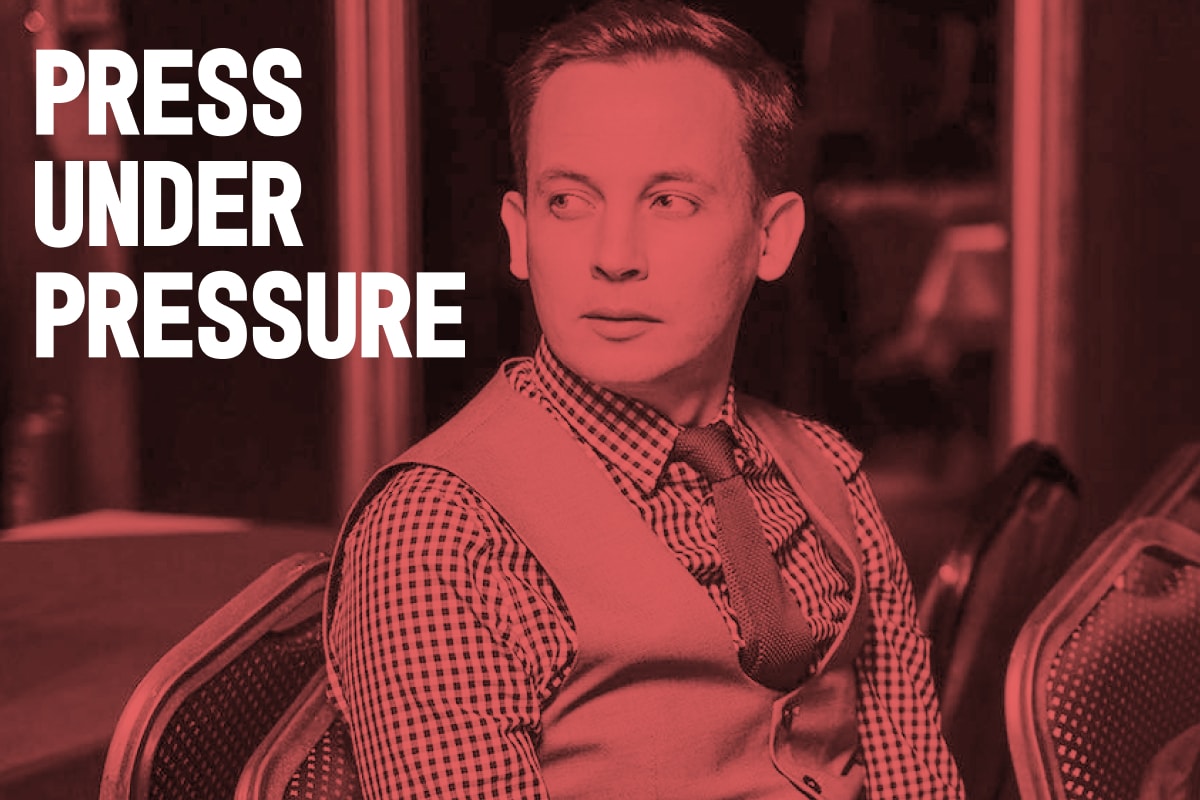
Press Club Academy Programme Director Sergei Yakupov was detained on December 22, 2020, the same day as the Press Club founder Yuliya Slutskaya, Financial Director Sergey Olshevski, Programme Director Alla Sharko and cameraman Peter Slutsky. Sergei’s brutal detention took place at his flat in the presence of his wife and child, and included the confiscation of all electronic items.
For about a day neither the lawyers, nor the relatives of the detainees could find out where they were. They resurfaced at the FID, Financial Investigations Department of the State Control Committee, then they were transported to the detention facility in Okrestsina. And on December 24, it emerged that all the detainees were suspects in a criminal case under Part 2 of Article 243 of the Criminal Code (grand tax evasion) and would be taken into custody at a detention facility.
On December 31, 2020 Sergei Yakupov was released and deported to Russia with prohibition of entry in Belarus for 10 years. He was not charged. All the other detained Press Club employees are now at Detention Facility No. 1 in Minsk, charged with grand tax evasion.
Sergei shared the details of his detainment, his time spent at a detention facility and of his deportation.
On December 22, my colleagues – not those in Belarus, but the Russian ones – texted me that Yuliya Slutskaya had been detained. I had seen news about that, but I understood that if she was detained, they might come for the others as well. Then my Belarusian colleagues texted me that someone was forcing their way through Alla Sharko’s door. And literally after that message arrived, they rang my doorbell.
I had no lawyer at the time. My wife found during the process: she texted her acquaintance who recommended to go to Anton Gashinsky. I can say it was an important decision for us. I managed to ring the lawyer and tell him what was going on.
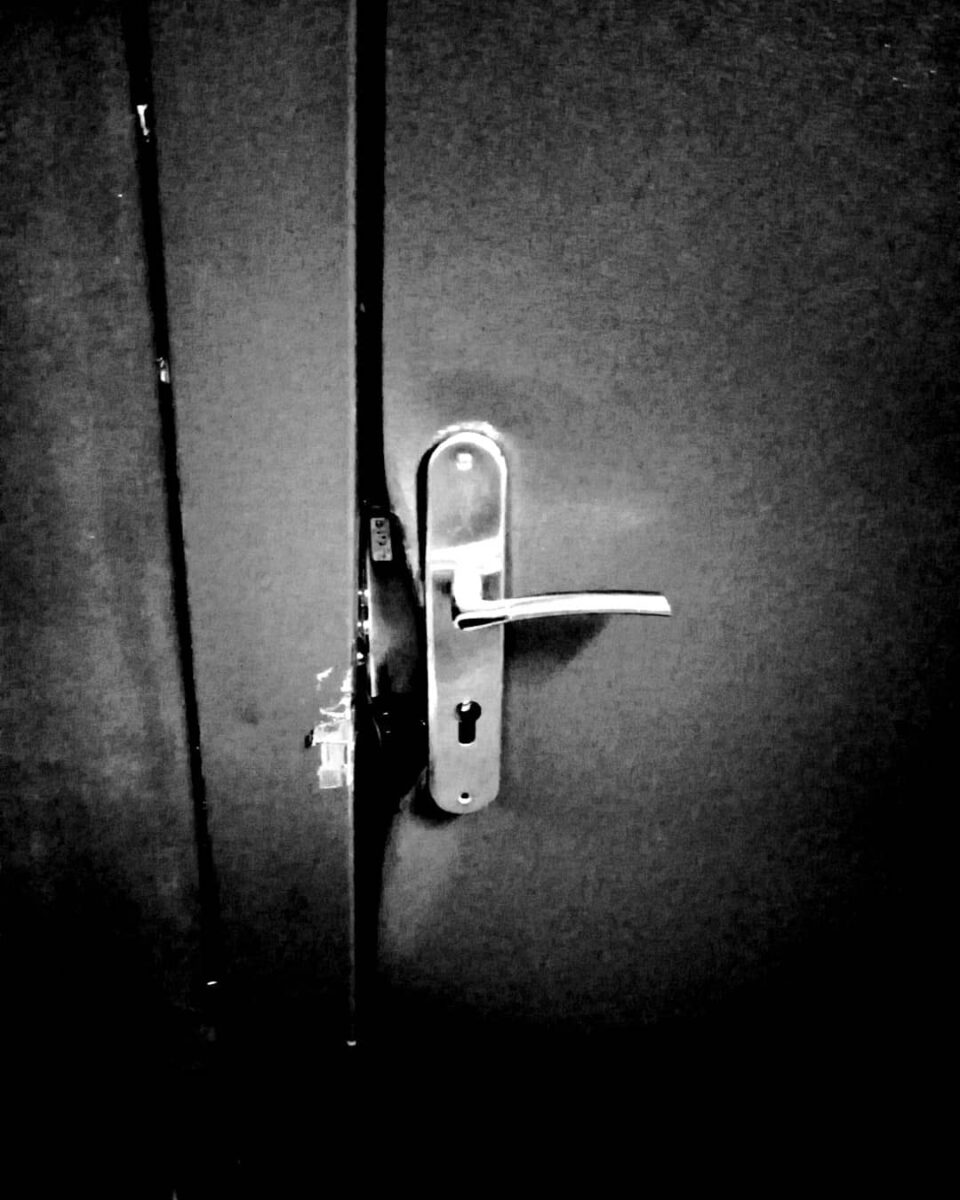
Broken door to Sergei Yakupov’s apartment. Source: Facebook page of Elena Yakupova, Sergei’s wife.
I didn’t open the door. I hoped they would ring for a while and leave if I didn’t open it. But as it turned out, they would not leave because they were monitoring my location via my telephone signal, so they knew I was at home. The ringing and knocking on the door continued for about three hours. Then they went downstairs and rang the video intercom. It was only then that I saw those were men in balaclavas. None of them stated who they were and why they were ringing during the whole time.
After three hours these people started to break down our door. I decided to open it, but I was late – they had cut the door with a specialised tool. They stormed into the flat where my wife and my 10-year-old child also were.
They were brandishing a gun, put me down on my knees, and hit me over the head twice. After that, the FID inspector entered and said it was not a search, but an inspection and that they would confiscate all the electronic items.
They were in the flat for about two hours. They seized all the electronics: two laptops, my and my wife’s phone, our child’s phones. They took all our bank cards. They were going to seize an old tablet as well, but found nothing on it except for school books and returned it. I did not sign any of the documents they had brought with them. There was an inspection order which, of course, rather resembled a formal search.
Then I was told to take money for a taxi and that I was to go with them to answer questions. Yet no one specified what those questions would be about. They didn’t answer my query as to where they were to take me. Only the inspector said quietly, «FID.»
They brought me out of my flat, I saw Anton Gashinsky, my lawyer, on the landing. I told him I was most likely being taken to the FID. Then they took me. I was at the FID building at about half past eight in the evening of December 22. I realised later that I was not alone there – at some point I saw Yuliya Slutskaya, Alla Sharko and two other men I didn’t know. They placed us in separate rooms.
That evening (and night) I had two questioning sessions. At the end of the first questioning, three inspectors compiled one sheet of records. They printed it out and took it to the inspector who detained me. Then the second questioning session started with that inspector. It was then that he explained to me on what grounds I had been detained.
I asked for my lawyer, but I was told it was not a formal questioning, so the lawyer’s presence was not required.
I’m not a legal professional myself, so I can’t tell whether he was right. My questioning – more precisely, presentation of explanations – ended at four in the morning.
The investigator went off to sleep and we were left in separate rooms with several inspectors guarding us. It was completely unclear what to expect next. The FID employees answered our questions poorly and vaguely, so it became clear we were unlikely to be released soon. The rest of the night I spent sitting on a wooden chair. They gave me water to drink, let me go to the bathroom and allowed me to stand up and walk around the room.
Almost nothing happened the next day, December 23. The FID employees walked around, asked me questions, finally allowed my lawyer to come and conducted the first official questioning. In the late afternoon, at about five or six, some movement started, they were filing papers. As far as I understood, the «official» detainment story had now begun. About an hour or an hour and a half later, an order for our detainment and remand at the detention facility in Okrestsina was issued.
Roughly speaking, for a day, our legal status was unclear, and none of our relatives was informed.
I saw through the window that from early morning till the evening that day my wife was standing near the FID. I found out later that she approached the officials several times and asked whether we were there. She was told such people were not there, although the duty officer had recorded my data at the entrance to the FID.
Neither were our relatives informed about us being transported to Okrestsina. They led us out of the FID building via some secret route so that the people who were gathered at the entrance would not see us.
At Okrestsina I was placed in a cell with three other men, all of them «political».
Next morning, December 24, at about 11 a.m. I was taken to the FID again. My lawyer, however, said they might release me, because there were legal grounds for it. We spent the day in the same rooms.
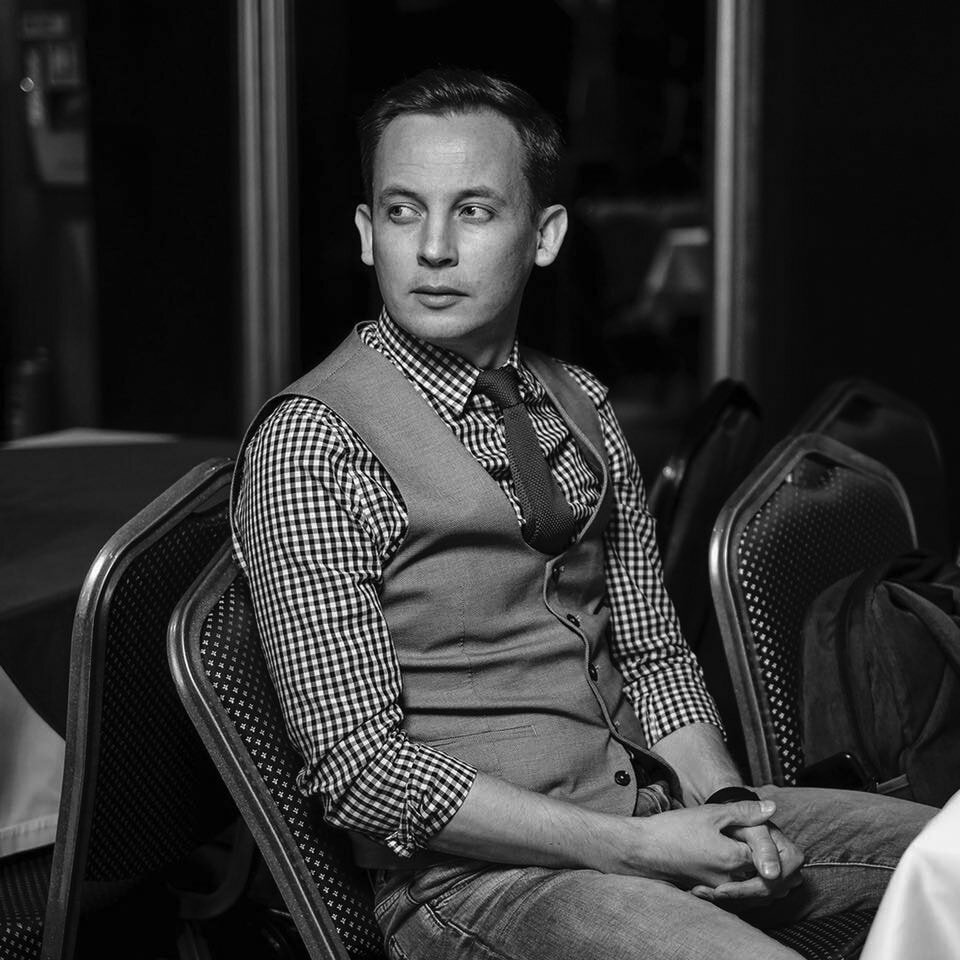
Sergei Yakupov
Then we all were brought to a hall with the detainee escort officers and placed in different corners. They even fed me beforehand – the FID employees bought me a shawarma kebab with their own money. Then relatives of the other detainees sent food as well.
None of us gave a statement that day: we all signed a refusal to do so on our lawyers’ recommendations.
A while later we found out that our status had been changed from witnesses to suspects and remanded in custody for ten days at the detention facility in Valadarskaha Street.
Our relatives managed to pass us some things and food before our transfer to the detention facility. For some reason, while all the others were taken through the main entrance, I was led out separately, through a different exit. Some even managed to talk to their relatives. I wasn’t given such an opportunity. I was told, «It is too noisy there.»
When I was brought to the detention facility, before being placed in a cell, I was placed in – I don’t know how to describe it – some kind of purgatory. It was a cell with an open window, it was extremely cold there, a completely messed toilet – or, rather, a hole in the floor – and bare metal beds. It felt like I spent around three hours there. Then they called me for filing paperwork. And then they finally let me take a shower, for the first time since my detention on December 22.
I should note that I received quite tolerant treatment both at the detention facility and at the facility in Okrestsina: there was no violence or anger, they addressed me politely. I wasn’t handcuffed at any point.
In the cell where they placed me all the prisoners were «political». There were up to 8 people in a cell for 12. People came and went. For a couple of days, there were five of us.
I can’t tell for others, but in our cell there was a TV working the whole day, morning till night. But of all the channels there was only state Belarusian TV.
I had good relationships with all my cellmates. We helped each other, there was no harassment.
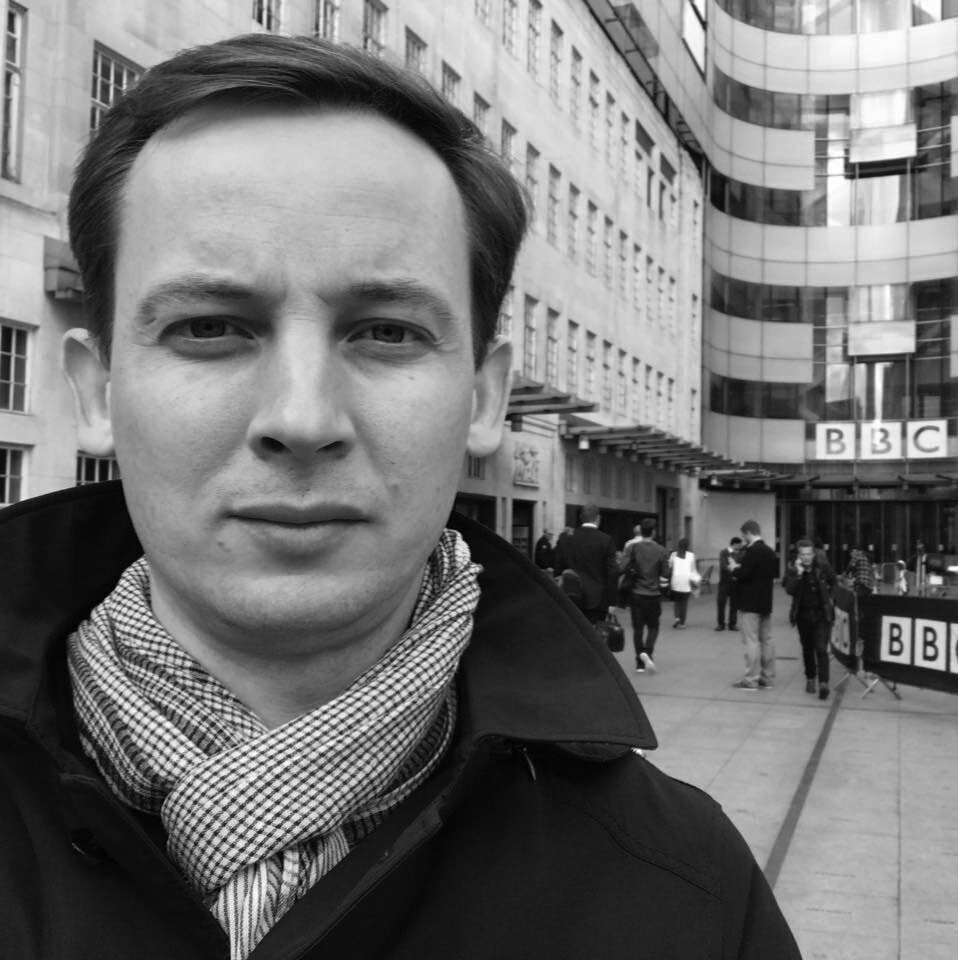
Sergei Yakupov
Still, it is very hard to be in a cell. All these bars, limited space are very depressing. I admire the stamina in those men who had been there for a long time and maintained their morale, stayed sane. Everything is built in a way to create the feeling that one should never allow oneself to get there under any circumstances.
Another thing hard for me was that everyone in the cell, except me, smoked. I felt smoke-filled to my bones and had a bad cough because of it. Of course, I got used to it eventually, but it was still unpleasant.
I received no letters during my time at the detention facility. But I received packages from my wife. I think there were four of them. Her first package contained envelopes and notebooks for me to write letters. In fact, these things — paper and envelopes and other little things — are priceless there. I wrote one letter, but it hasn’t reached its addressee yet.
On December 28, I had my first questioning.
One important detail: during my whole time at the detention facility I only spoke with my lawyer a couple of times, two minutes each. They justified it by referring to the lack of meeting rooms available.
Despite the fact that according to the detainee rights and obligations explanation protocol, I had the right to speak with my lawyer an unlimited number of times for unlimited amounts of time. Naturally, it is quite difficult to consult properly or say something clearly within just two minutes.
I was questioned every working day for around two hours. Every time they asked different questions. During these questioning sessions my lawyer and I discovered many inconsistencies, but the investigator either ignored our comments, or simply read what had been written on a piece of paper by some other person.
On December 29 or 30, my lawyer told me that there was a huge information campaign in Russia and that I was likely to be released before the New Year. Many mass media spoke in my defence. The Union of Journalists of Russia even sent a letter to the Investigation Committee or to the Prosecutor’s Office and, as I found out, on January 8 it received a response that «the application was considered, custodial restrictions removed.» Maria Zakharova, the spokeswoman of the Ministry of Foreign Affairs of Russia, also made a call to Belarus regarding my case.
On December 31, at 12 o’clock proceedings were to take place at the Partyzanski District Court of Minsk regarding my lawyer’s application on changing the terms of custody. However, at 12:15 the investigator summoned me (again, without my lawyer present) and showed me a document saying that as a result of inquiries made since December 28 the investigator had failed to establish any violations committed by me. That document also said that I was no longer a suspect, the restrictions were removed and I was to be released.
I returned to my cell, told my cellmates I was released, collected my things. Then a detainee escort officer came for me. Also, they didn’t inspect me at the exit, although it is normal practice. They just made me sign some paper and let me leave.
My wife was waiting for me in the car outside. But another vehicle stopped in front of me and two people, a man and a woman, got out of it. They said they were from the Department of Migration and I was to follow them. I was shocked, to put it mildly: what else was to happen to me now?
I got into their car, but asked to let my wife know what was happening. The request was denied.
Frankly speaking, this practice of withholding information is a terrible thing. It is psychologically tough.
In the car, I was shown a new order saying I was to be subjected to forced deportation with prohibition of re-entry into Belarus for ten years. However, I saw no justification for imposing this maximum possible prohibition, or why should I be deported that very day. Maybe I just didn’t reach that part of the document, because its first lines were clear enough.
Then the Department employees told me they wouldn’t be able to deport me that day because they were to go to «protect Christmas trees» in an hour and a half. For that reason I was to be placed in their Department’s detention facility and then on January 5, after the holiday, I would be sent to Russia by plane. I asked whether there was any chance to avoid returning to a detention facility.
«If you find a ticket within an hour and a half and leave the country, that is your chance,» they said.
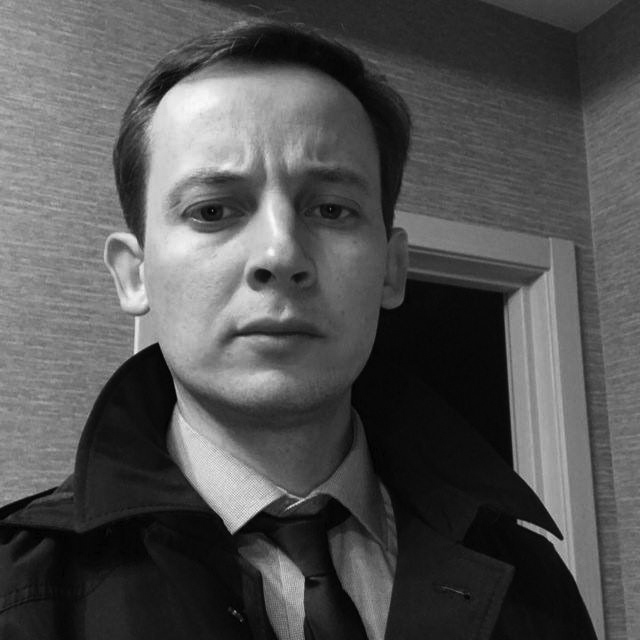
Sergei Yakupov
And so it started… I gave them my lawyer’s telephone number, they rang him, he rang my wife, she rang my sister in Perm [a city in Russia], and my sister started to look for any plane tickets. She couldn’t find any non-stop flights. The Department of Migration first insisted that the flight was non-stop. My lawyer suggested taking me by car to any point they approve. But they denied her – I was only allowed to go by plane. And then my sister found a transit flight to Moscow through Vilnius and Istanbul.
Frankly, I’m really grateful to those two employees of the Department of Migration because they risked themselves and did everything they could for me to leave the same day. They even stood up against some of their colleagues who didn’t want me to leave that way. Eventually, they decided that I could leave with that ticket.
Meanwhile, they had managed to ask my wife to collect my things and bring them to the airport. Then at the airport I saw my wife for the first time since my detention and managed to spend some time with her while I changed clothes and generated a QR code to cross the border in Vilnius.
I arrived in Vilnius with no money, no phone. Only my backpack with clothes.
Two women from the Lithuanian customs service helped me: one of them gave me her phone to ring my wife, and the other gave me some food.
I was at the Istanbul airport about ten minutes before midnight on New Year’s Eve. There was nothing special happening there at the time. There were quite a lot of people there, yet nobody was celebrating. I spent the whole night in the airport: my flight to Moscow was at nine in the morning.
My sister met me in Moscow with a ticket to Perm where all my relatives live. On January 2, at night, we finally departed.
How am I now? It’s complicated. On the one hand, I’m very happy that the situation was resolved quickly and relatively harmlessly. I met my family, thanked everyone who supported and helped me. But on the other hand, it is extremely painful to think about everyone who is still in Valadarskaha St. detention centre in Minsk – Yuliya, Sergey, Alla, Peter. It is very unjust.
Terms and conditions
Partial or full reprint is permitted subject to following terms of use.
An active direct hyperlink to the original publication is required. The link must be placed in the header of the reprinted material, in the lead or the first paragraph.
Reprints, whether in full or in part, must not make changes to the text, titles, or copyrighted photographs.
When reprinting materials from this page, attribution must be given to the Press Club Belarus “Press under Pressure” project, collecting evidence of repression against independent media and journalists in Belarus.